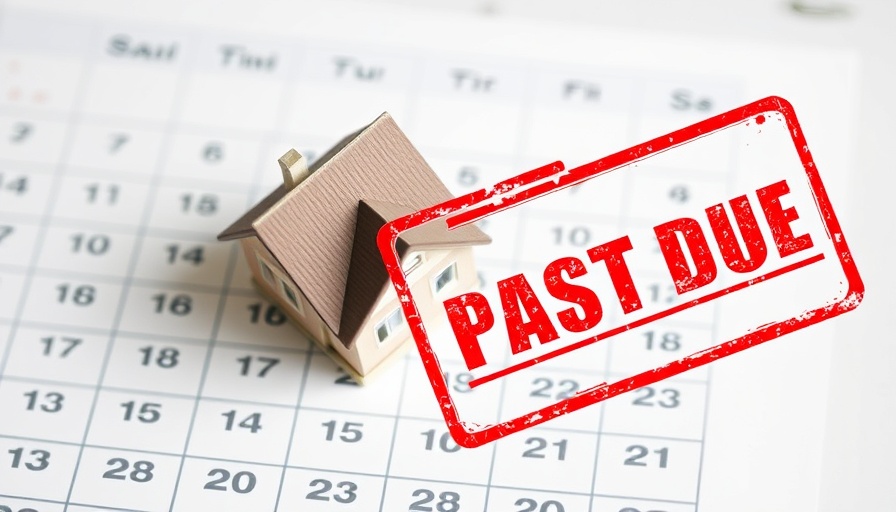
The Consequences of Missing Mortgage Payments
No one wants to think about what might happen if they stop paying their mortgage. Yet, understanding the steps that follow is essential for homeowners feeling the strain of financial hardship. Missing mortgage payments is not just about immediate financial penalties; it can lead to a potential spiral of devastating outcomes.
Immediate Impact: Fees and Credit Score Damage
Initially, when a mortgage payment is missed, homeowners face late fees and a deteriorating credit score. Most mortgage loans offer a 15-day grace period, after which late fees begin to accrue. But this is just the start of a troubling timeline. Once payments reach 30 days late, lenders report the delinquency to credit bureaus, causing a noticeable drop in credit scores. The longer the payments go unpaid, the greater the damage to your credit—a crucial factor for obtaining future loans, credit cards, or even housing rentals.
The Foreclosure Timeline: What to Expect
Foreclosure is a legal process that allows lenders to recover the balance of a defaulted loan by forcing the sale of the asset used as collateral. The timeline for foreclosure varies by state, but it generally follows this path:
- 30-90 Days Late: Ethereal reminders from your lender, including notices that urge immediate action.
- 90+ Days Late: Possible filing of a Notice of Default with the local county.
- 120-180 Days Late: Foreclosure proceedings begin and communication from the lender intensifies.
- 180+ Days Late: Home may be scheduled for auction or sheriff’s sale.
The difference between judicial and non-judicial foreclosure can impact how quickly this process unfolds, with non-judicial states typically moving faster.
Can You Lose Your Home? A Serious Reality
Ending up in foreclosure means more than losing your home; it can also leave you with a lingering financial burden. Some states allow lenders to seek a deficiency judgment, meaning you could still owe money if the sale of your home doesn’t cover the mortgage balance. Understanding the stakes involved underscores the necessity of finding solutions early on if a financial crisis looms.
Avoiding Foreclosure: Taking Action
For homeowners falling behind on payments, it is vital to act quickly. Options to avoid foreclosure may include:
- **Loan Modification**: Adjusting the terms of your loan to make payments more manageable.
- **Forbearance**: Temporarily pausing or reducing mortgage payments.
- **Repayment Plans**: Structuring past due payments into your future mortgage payments.
- **Selling the Home**: Selling your home may provide funds to pay off the mortgage and avoid foreclosure, especially in a seller’s market with rising home values.
Be Proactive: Knowledge is Power
Understanding the ramifications of missed mortgage payments allows homeowners to be proactive. Seek assistance from a financial advisor or a housing counselor to explore options specific to your situation. There are multiple resources available, from state programs assisting distressed homeowners to non-profit organizations offering free counseling and support.
Long-term Consequences and Recovery
The repercussions of foreclosure are long-lasting, affecting credit scores for years and complicating future financial endeavors. After a foreclosure, it's essential to take steps toward re-establishing credit—having a solid plan in place will empower you for future financial security.
Whether you're feeling the pressure of mortgage payments or just want to understand the landscape, refinancing, seeking assistance, and being educated about your rights can all help mitigate risk and protect your home.
Ultimately, being informed about your financial obligations is not just about safeguarding today’s assets—it's about securing a stable future.
 Add Row
Add Row  Add
Add 



Write A Comment